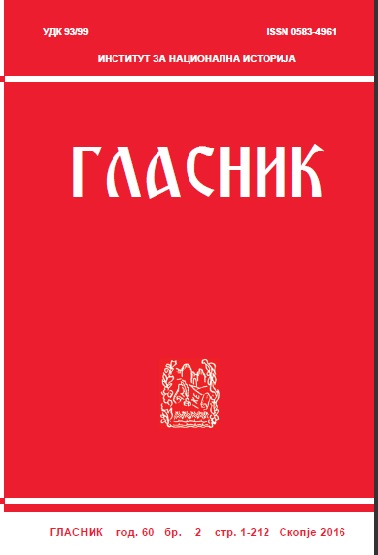COMPARATIVE ANALYSIS OF THE POLITICS OF NATION - BUILDING IN POLAND AND MACEDONIA IN THE POST-WAR PERIOD
COMPARATIVE ANALYSIS OF THE POLITICS OF NATION - BUILDING IN POLAND AND MACEDONIA IN THE POST-WAR PERIOD
Author(s): Katarzyna KropiakSubject(s): Developing nations, Interwar Period (1920 - 1939), Post-War period (1950 - 1989), Ethnic Minorities Studies
Published by: Институт за национална историја
Keywords: nation building; self-determination; national minorities; interwar period; national movement; population exchange; assimilation
Summary/Abstract: The fall of multiethnic empires in the early twentieth century was the reason for the emergence of new nation-states on the map of Europe. Boundaries were often established by consensus, as a result of international conferences, protecting the balance of power of world powers, without taking into account the boundaries of ethnic communities living in certain geographical areas. The national minorities that remained within the newly created nationalizing states became the subject of processes of settlement, assimilation or exclusion, which manifested itself in extreme form in ethnic cleansing. The theory of Harris Mylanos, author of The Nation-Building Policy and the Formation of Content Citizens, Refugees, and Minorities, deals with the implementation of international conditions for nation-building policy and its scenarios in relation to national and ethnic minorities. The author emphasizes that the choice of scenarios does not depend on the group's connection, ability or desire to assimilate, but on external support for the group's requirements. External support can be expressed through the activities of elites in their homeland, through the support of international organizations and world powers or neighboring countries. In the Polish case, after the end of the First World War, the liberation aspirations were determined by the support of the emigrating elites, the world powers and the structure of the international powers, along with the weakening of the nationalized countries as a result of the wars. However, in the case of Macedonia, the interests of the Balkan states and the creation of international forces after the Second Balkan War led to the implementation of the policy of assimilation and exchange of population, which often happened in a drastic way.
Journal: Гласник
- Issue Year: 60/2016
- Issue No: 2
- Page Range: 135-149
- Page Count: 15
- Language: English

